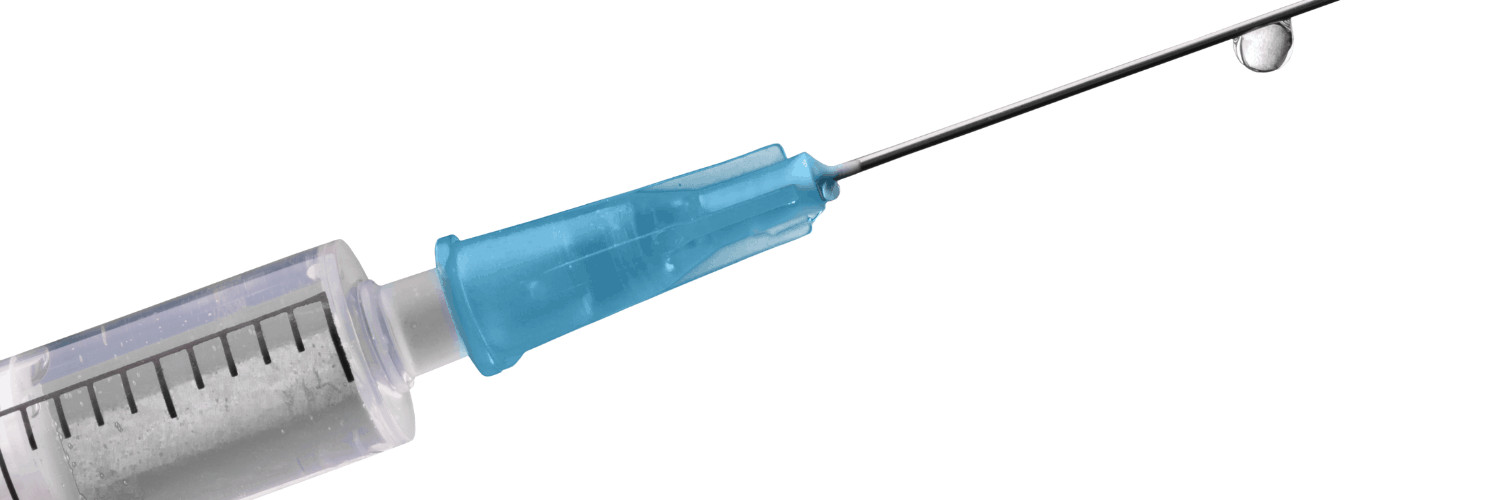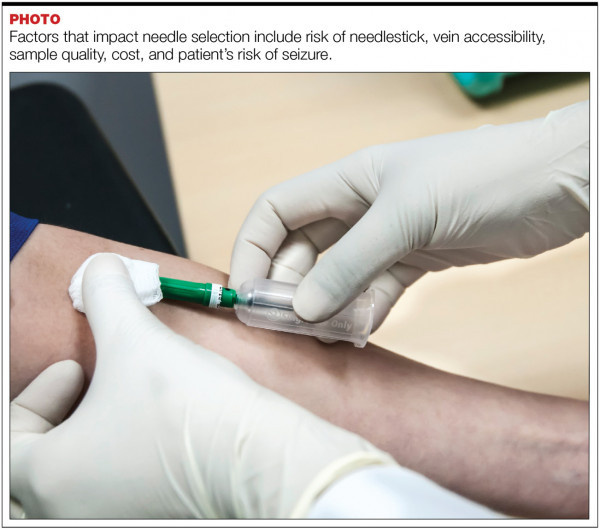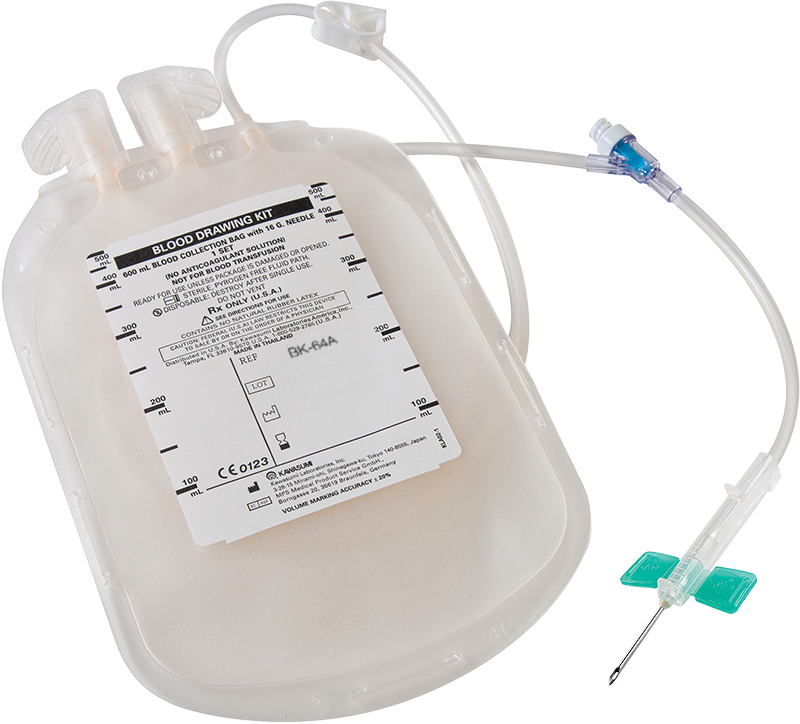Gauge Of Needle For Blood Draw
Gauge Of Needle For Blood Draw - The lengths vary as well, with the 1, 1 1/4, and 1 1/2 inches being the ones used the most. This is to reduce pain. Also, the test usually only requires a small sampling, so blood flow rate is not an issue. Use of a retractable needle or safety needle with a needle cover is preferred if available, but all should be cut off at the end of the procedure (as described in step 6 , below) rather than recapped. While the size can vary, most needle sizes are 21 to 23 gauge. Web view hamilton's needle gauge chart. Needles thinner than that, especially in the 25 to 27 gauge range, are inappropriate for blood draws. Larger butterflies allow faster draws from deeper, robust antecubital veins with high blood flow. 1 the short needle length allows the phlebotomist to insert it at a shallow angle that can increase the ease of use. Web most butterfly needles range from 18 to 27 gauge. Most butterfly needles are no. 16 gauge a 16 gauge needle is larger in diameter compared to a 17 gauge needle, meaning it has a wider opening. Use of a retractable needle or safety needle with a needle cover is preferred if available). Web the common butterfly needles are 1/2 to 3/4 inches long and come in a range of. Web in this video, you will be shown the correct way to draw blood with a straight needle. A safety syringe with a needle cover that allows the syringe to be capped before transport, without manually recapping (this is best practice for radial blood sampling); For most patients, their veins are of a size and stability that is best suited. Web below is a needle gauge chart showing the sizes of needles used for the evacuated tube system,. Web the 21g needle ensures consistent blood flow, which speeds up blood collection. If the needle is too large for the vein for which it is intended, it will tear the vein and cause bleeding (haematoma); The device comes with design. Web. The gauge is small enough in which it does not cause any significant pain or discomfort during use. Web smaller needles are preferable for pediatric patients, the elderly, those with difficult veins, or individuals prone to bruising. Most butterfly needles are no. 1 the short needle length allows the phlebotomist to insert it at a shallow angle that can increase. The gauge is small enough in which it does not cause any significant pain or discomfort during use. Web most butterfly needles range from 18 to 27 gauge. Also, the test usually only requires a small sampling, so blood flow rate is not an issue. Web the 21g needle ensures consistent blood flow, which speeds up blood collection. Larger butterflies. The 21 gauge needle is the standard gauge needle. Web in this video, you will be shown the correct way to draw blood with a straight needle. Web the common butterfly needles are 1/2 to 3/4 inches long and come in a range of gauges, with 21 and 23 gauge the most frequently used. Ask the donor to open and. Web in this video, you will be shown the correct way to draw blood with a straight needle. Web in blood donation, two common needle gauges are typically used: A safety syringe with a needle cover that allows the syringe to be capped before transport, without manually recapping (this is best practice for radial blood sampling); 1 the short needle. For most patients, their veins are of a size and stability that is best suited for the 21g needle. For most blood draws, a size 21 to 23 gauge needle is used—like this 22g x 1.25 eclipse blood collection needle w/luer adapter. Web butterfly needles, also known as winged infusion sets, are typically used for procedures that require smaller gauge. Web below is a needle gauge chart showing the sizes of needles used for the evacuated tube system,. A lancet is a needle, but it is distinct in that is not hollow. Larger butterflies allow faster draws from deeper, robust antecubital veins with high blood flow. Ask the donor to open and close the. Web vitality medical offers medical practitioners. Web most butterfly needles range from 18 to 27 gauge. Use of a retractable needle or safety needle with a needle cover is preferred if available, but all should be cut off at the end of the procedure (as described in step 6 , below) rather than recapped. Web butterfly needles, also known as winged infusion sets, are typically used. A 2 or 2 1/2 inch may be used by doctors to draw blood from the femoral vein when peripheral vein access is not possible. This is best used for veins in older children or adults. The gauge is small enough in which it does not cause any significant pain or discomfort during use. Hamilton's guide to selecting a syringe needle gauge will. Web the 21 gauge vs the 23 gauge needle. Web 21g needles are the most common gauge of needles used for routine blood draws and venipuncture. Also, the test usually only requires a small sampling, so blood flow rate is not an issue. 16 gauge a 16 gauge needle is larger in diameter compared to a 17 gauge needle, meaning it has a wider opening. Larger butterflies allow faster draws from deeper, robust antecubital veins with high blood flow. A safety syringe with a needle cover that allows the syringe to be capped before transport, without manually recapping (this is best practice for radial blood sampling); 4 insulin delivery, which involves ev. The smallest gauge, 25, is used primarily with pediatric patients. Web in this video, you will be shown the correct way to draw blood with a straight needle. Web the common butterfly needles are 1/2 to 3/4 inches long and come in a range of gauges, with 21 and 23 gauge the most frequently used. The higher the number is, the smaller or thinner the needle size is. Ask the donor to open and close the.
Phlebotomy Syringe Draw Procedure Blood Collection (RxTN) YouTube

Common Gauges of Needles Used for Venipuncture PhlebotomyU

Proper Needle Selection for Blood Collection September 2019

Sterican Blood Drawing Needles Buy Here

Butterfly Needles Explained E Phlebotomy Training

The needle gauge comparison chart Medical Nursing Medical assistant

Exel International MultiSample Blood Draw Needles Green Hub; 21 G x 1.

Exel International Winged IV Butterfly Blood Draw SetBlood, Hematology

KShield Advantage® Blood Drawing Kit Kawasumi
![Needle Gauges [+ Free Cheat Sheet] Lecturio Nursing](https://cdn.lecturio.com/assets/Nursing_CS_Needle-Gauges.jpg)
Needle Gauges [+ Free Cheat Sheet] Lecturio Nursing
This Larger Size Allows For A Faster Blood Flow During The Donation Process.
Web In Blood Donation, Two Common Needle Gauges Are Typically Used:
Web Needle Sizes Range From 18 To 27 Gauge, With Higher Numbers Being Thinner Needles.
Web Smaller Needles Are Preferable For Pediatric Patients, The Elderly, Those With Difficult Veins, Or Individuals Prone To Bruising.
Related Post: